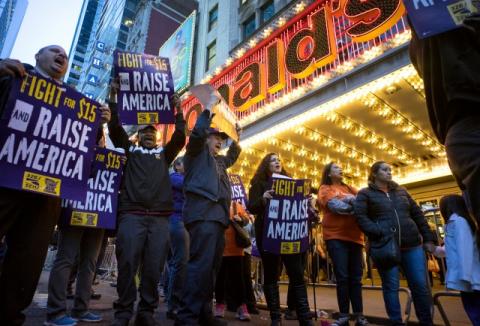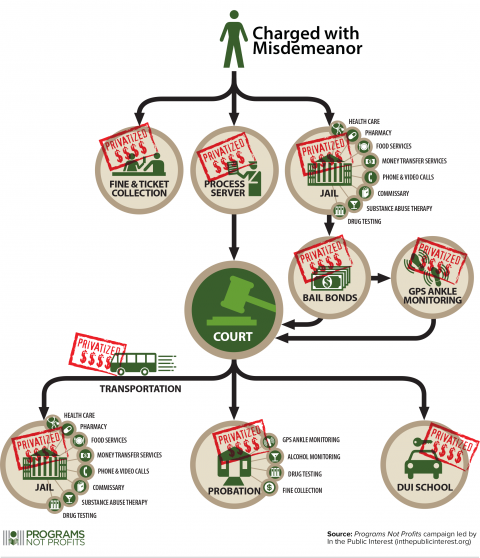What’s the Right Minimum Wage?








The first Moral Monday since court struck down the North Carolina General Assembly's new rules — interpreted by many as measures designed to silence the Moral Monday Forward Together movement — singing, praying, chanting, and civil disobedience arrests looked a lot like what we saw from Moral Monday in 2013.
The Raleigh News and Observer reports:
Days after persuading a Superior Court judge to suspend some new rules for the N.C. Legislative Building, protesters were back on Monday, raising their voices by many decibels against a state budget and Republican-controlled agenda they describe as "extremist."
As the demonstrators tested the breadth of the order signed Monday by Judge Carl Fox about the overly broad definition of "disturbing behavior," General Assembly police checked with their attorneys on the depth of their authority to remove the noisemakers from the state building.
About 20 minutes after the N.C. Senate went into session, law enforcement officers began wrapping plastic cuffs around the wrists of 20 demonstrators who had continued singing, chanting and speechmaking after being asked to quietly leave the rotunda area outside the General Assembly chambers.
The scene was reminiscent of last summer, when more than 900 demonstrators were arrested for similar actions.
Read more here.
Spread the word